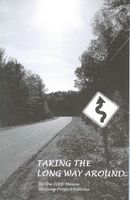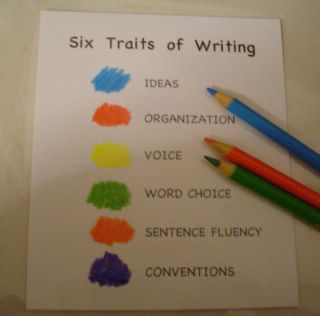Many of the links on my portaportal were no longer active, so I did some updating. Out with the old - in with the new! Check out my latest portaportal, which is meant to be a reference for my students.
Portaportal: Pothier
Saturday, April 19, 2008
Tuesday, November 20, 2007
Centers
My YA Lit class is nearly over, and at this point teachers are presenting their research-based (inquiry) projects. A favorite workshop approach involves the use of centers. It seems to be the best way to go... considering there's so much information to share in only 30 minutes. Our instructor, Cindy, (who is also a high school teacher and doctoral student) asked us if we use centers in our classrooms. Most of us don't (including me), but I immediately thought of Valerie. Earlier in the year, she had mentioned that she wanted to begin using centers in her classroom. I'm wondering if she has experimented with them yet. Cindy explained how centers are most often used in the lower grades, but her high school students respond well to them. In our class of teachers, centers are proving to be a powerful and "cool" way to learn.
Friday, May 04, 2007
Monday, December 04, 2006
Snow!
Undivided Attention
By Taylor Mali
A grand piano wrapped in quilted pads by movers,
tied up with canvas straps - like classical music's
birthday gift to the insane -
is gently nudged without its legs
out an eighth-floor window on 62nd street.
It dangles in April air from the neck of the movers' crane,
Chopin-shiny black lacquer squares
and dirty white crisscross patterns hanging like the second-to-last
note of a concerto played on the edge of the seat,
the edge of tears, the edge of eight stories up going over, and
I'm trying to teach math in the building across the street.
Who can teach when there are such lessons to be learned?
All the greatest common factors are delivered by
long-necked cranes and flatbed trucks
or come through everything, even air.
Like snow.
See, snow falls for the first time every year, and every year
my students rush to the window
as if snow were more interesting than math,
which, of course, it is.
So please.
Let me teach like a Steinway,
spinning slowly in April air,
so almost-falling, so hinderingly
dangling from the neck of the movers' crane.
So on the edge of losing everything.
Let me teach like the first snow, falling.
By Taylor Mali
A grand piano wrapped in quilted pads by movers,
tied up with canvas straps - like classical music's
birthday gift to the insane -
is gently nudged without its legs
out an eighth-floor window on 62nd street.
It dangles in April air from the neck of the movers' crane,
Chopin-shiny black lacquer squares
and dirty white crisscross patterns hanging like the second-to-last
note of a concerto played on the edge of the seat,
the edge of tears, the edge of eight stories up going over, and
I'm trying to teach math in the building across the street.
Who can teach when there are such lessons to be learned?
All the greatest common factors are delivered by
long-necked cranes and flatbed trucks
or come through everything, even air.
Like snow.
See, snow falls for the first time every year, and every year
my students rush to the window
as if snow were more interesting than math,
which, of course, it is.
So please.
Let me teach like a Steinway,
spinning slowly in April air,
so almost-falling, so hinderingly
dangling from the neck of the movers' crane.
So on the edge of losing everything.
Let me teach like the first snow, falling.
Tuesday, November 14, 2006
Becoming an Expert

"Fake it 'til you make it." Pretend to be an expert and your students will see you as an expert. By pretending, I mean doing all the things that I expect from my students. Which also means WRITING. The more I write, the better I am at teaching the craft. (At least, that's been my experience so far.)
Click here for personalized desk plates.
Sunday, October 29, 2006
Authentic Audience
Nancy Atwell, founder of Center for Teaching and Learning, expects that each of her students attempts professional publication. I'm encouraging my students to do the same. I believe that students take more pride (are willing to take the time and put in the effort) when there's a real, authentic audience for their writing. Publishing is taking on a greater importance in my classroom this year. Below is a "starting place" for resources. Please, send me an email if you have others to share.
KidPub Children's Publishing (online)
New Moon (magazine)
Stone Soup (magazine)
Potluck (magazine)
Chicken Soup for the Soul (magazine)
Teen Ink (This online resource lists many different opportunities and links for student publishing!)
"What happens to students’ intellectual efforts when there’s no place to showcase it? Most of it winds up crumpled in backpacks, in the trash, or in a box in the basement."—Joe Moses, founder and president of Classroom Publishing
KidPub Children's Publishing (online)
New Moon (magazine)
Stone Soup (magazine)
Potluck (magazine)
Chicken Soup for the Soul (magazine)
Teen Ink (This online resource lists many different opportunities and links for student publishing!)
"What happens to students’ intellectual efforts when there’s no place to showcase it? Most of it winds up crumpled in backpacks, in the trash, or in a box in the basement."—Joe Moses, founder and president of Classroom Publishing
I'm Published!

Taking the Long Way Around
by the 2006 Maine Writing Project Fellows
As a culminating activity for the Maine Writing Project, each participant submitted 1-2 pieces of writing to be published. This anthology is an expectation for each year. An editing board was established by the end of the project, and those members met a few times to organize the material, design a cover, and find a publisher. The budget (for about 100 bound copies) was about $600.
The one poem that I submitted had a huge typo, but nevertheless, I was excited to see my writing in print. And my students were even more excited. They just couldn't believe that their teacher, someone they actually know, had a piece of writing published. Their reaction has motivated me (even more) to continue to search for local authors to visit our classroom and to closely examine the lives of published authors. My students aren't yet convinced that authors are real people who write about or are inspired by real-life experiences.
Tuesday, October 10, 2006
Visible Revision

NEW IDEA: I recently participated in the Maine Writing Project. There, a colleague shared a way of examining the characteristics of memoir by using a color-coding revision technique. Although I have not yet taught a memoir unit, I have adapted this activity to my students' use of the Six Trait model for writing. Before students conference with me during our Writing Workshop, I expect that they apply the revision strategies that they learned during whole or small-group instruction in their own writing. Using colored pencils is a way for students to work with one trait or skill at time... and the colors show evidence of (independent) revision.
I believe in the use of Vicki Spandel's Six-Trait analytical model for teaching writing. This model is not a new curriculum. It's a vision. It's a way of using common language to identify the characteristics of good writing. Writers have considered these traits for years. They are a shared vision for writing- a way of seeing and talking about writing that helps us to understand what makes it work.
I also believe that students are conditioned to see assessment as grading. This usually takes place at the end of the writing process where it is the least powerful. Assess comes from the Latin word assidire, which means "to sit beside." By using rubrics, students are their first primary assessors for their own work early in the process. It's difficult to strive for something if you don't know what it looks like. The rubrics show what the traits look like at different levels of performance. For my students, they are not used solely for the purpose of grading but are a framework for revision.
Subscribe to:
Posts (Atom)
